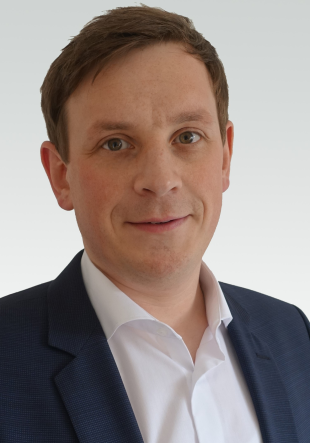At the symposium "The future of mobility in rural areas" on 6 and 7 November, the focus will be on solutions that drive forward the mobility transition: It is about technical innovations in public transport, innovative authorisation procedures for autonomous driving and new business models through smart services. The SICP – Software Innovation Campus at Paderborn University, together with the Heinz Nixdorf Institute and the Neue Mobilität Paderborn e.V., invites all interested parties to attend. Experts from the NeMo.bil and DiSerHub projects funded by the German Federal Ministry for Economic Affairs and Climate Action (BMWK) as well as from MOIA (VW), dSPACE, ScMI and GAIA-X will participate. A special highlight of the symposium will be an exhibition of interactive demonstrators that bring mobility solutions to life. Participation in the symposium is free of charge. Those who are interested can register on the SICP website until 30 October.
Interactive exhibition: Experience mobility solutions
Among other things, participants will have the opportunity to test connected driving functions in an interactive VR driving simulator and to get familiar with the on-demand mobility concept NeMo.bil using vehicle prototypes and a simulation. Companies such as dSPACE will also be presenting their latest technologies, including a so-called software-in-the-loop simulator and a sensor measurement vehicle. "At the SICP, we focus on the digital transformation of mobility. Through targeted scientific communication, we build a bridge between research, business and society in order to jointly develop innovative solutions," says Dr. Christoph Weskamp, Head of the Seamless Mobility innovation area at the SICP. "Among other things, we rely on demonstrators that make it possible to present complex technologies and methods in a vivid way. At the same time, they serve as a platform for discussing further requirements for the systems with potential users. We therefore cordially invite all interested parties to this event.’ Jonathan Behm, Managing Director of Neue Mobilität Paderborn e.V., adds: "Our initiative presents pioneering approaches for a mobility system that is sustainable, socially just and also makes economic sense." The symposium not only offers space for discussion, but also for networking with industry experts.
Diverse selection of topics and exciting panel discussion
Prof. Dr. Thomas Tröster from the Faculty of Mechanical Engineering at Paderborn University explains how NeMo.bil could improve local public transport in rural regions. He will present the innovative mobility system, which is being funded by the BMWK with around 17 million euros.
In another lecture, Prof. Dr. Daniel Beverungen, SICP Chairman of the Chair of Information Systems, will explain how smart services not only improve connected driving, but also create new business models for manufacturers and service providers. This is because modern vehicles continuously collect data about the driving environment, vehicle status and user behaviour. This data enables personalised services such as predictive maintenance and optimised route guidance.
Autonomous driving is one of the major trends in future mobility. Level 4 autonomous vehicles can drive completely without human intervention under certain conditions. However, legal and technical hurdles must be overcome before Level 4 vehicles can hit the road. In his presentation, Frank Schneider from the TÜV Association will provide an overview of the current status of the approval and authorisation of Level 4 vehicles. The mobility expert will show which vehicles are already in use, which authorities are involved and what challenges manufacturers, vehicle owners and authorities have to overcome.
Marco Pape from energy storage provider Intilion will use the charging park in Bad Lippspringe to demonstrate the role that storage solutions play in the implementation of new mobility solutions. Participants will learn how the combination of charging infrastructure and energy storage makes the expansion of energy mobility more sustainable and efficient.
The symposium will also focus on the safety aspect. Johannes Thoma from HAAS Alert will present how digitalised emergency vehicles can warn road users at an early stage and increase road safety. He will address the challenges in the context of data protection as well as the opportunities for politics, society and industry.
A high-calibre panel discussion will provide additional exciting impetus. The experts Jonas Wigger (Public Affairs Manager at MOIA), Prof. Dr. Andreas Knie (political scientist at the WZB Berlin Social Science Center), Jann-Eve Stavesand (Head of Consulting at dSPACE), Prof. Dr. Heike Proff (economist at the University of Duisburg-Essen) and Ulrich Ahle (CEO of GAIA-X) will discuss approaches to technical innovations in public transport and changing business models through innovative mobility solutions and present pioneering strategies for testing autonomous driving functions. They will also explain why manufacturers should focus on software-defined vehicles.
This text was translated automatically.


